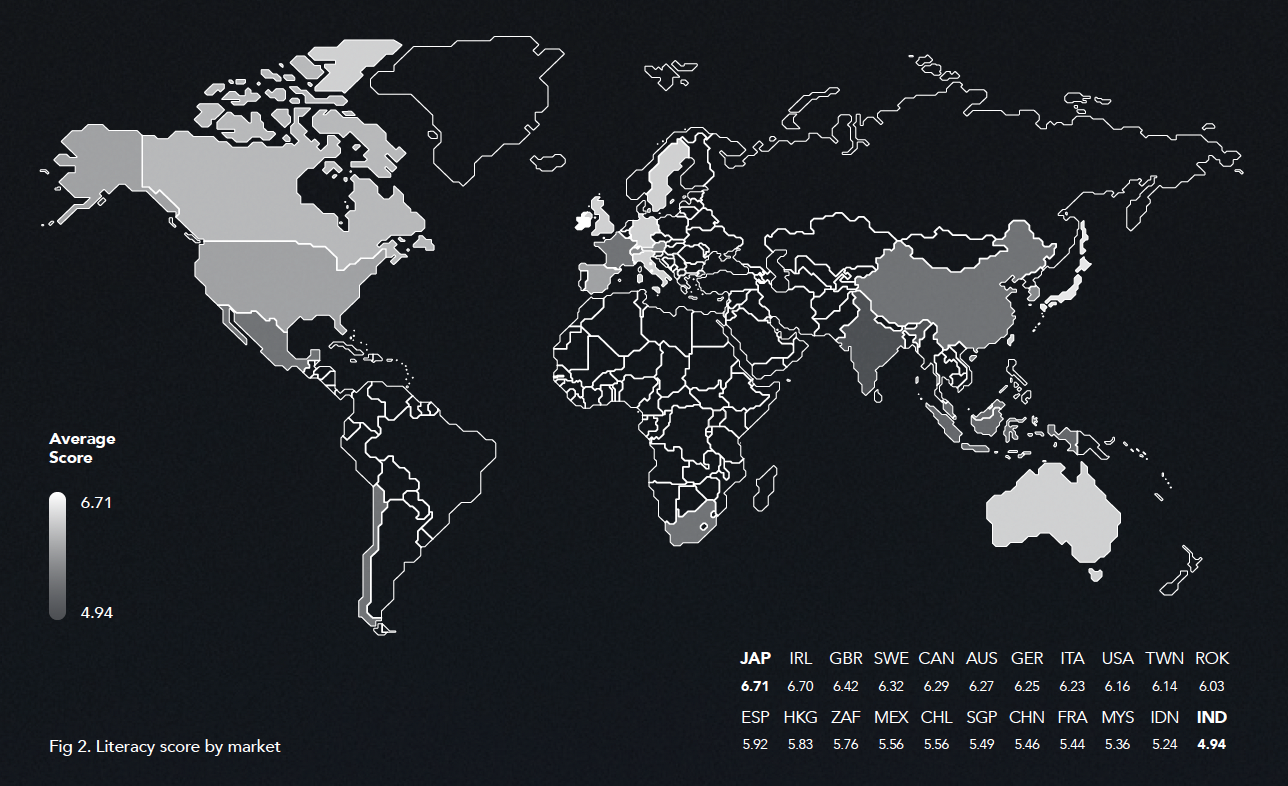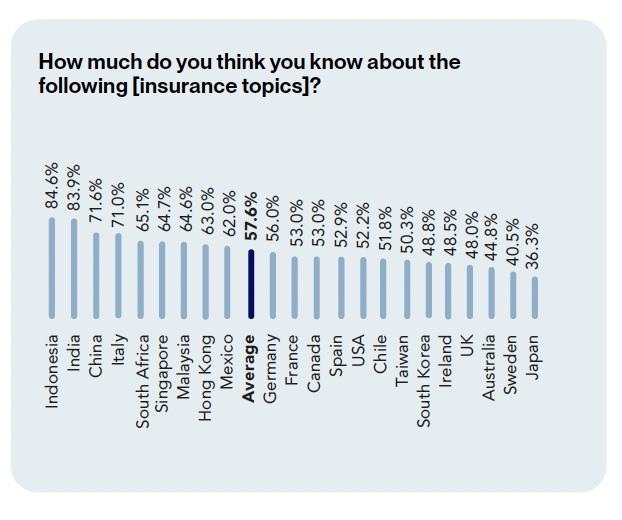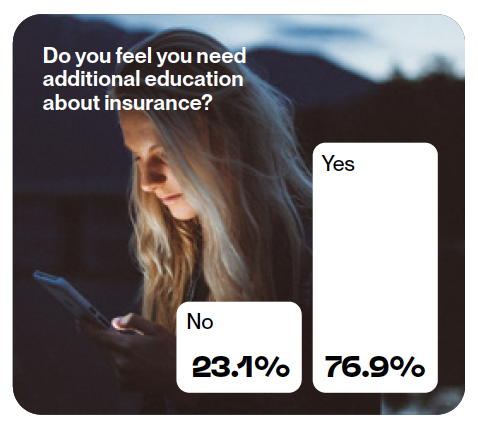Decoding insurance for the youth

-
77% of Gen Zs and Millennials feel they need additional education about insurance.
Once again this year, we are excited to dive into each insight of our Global Consumer Study (GCS). This week, we delve into our first observation, focusing on deciphering insurance literacy in today's young people.
“Real knowledge is to know the extent of one’s ignorance.”
This observation by Confucius has a timeless relevance. We put his thinking to the test.
As in previous years, we asked respondents to give a self-assessment of their knowledge of a range of financial products.
More than half of the respondents claimed to have a good or very good knowledge of both L&H insurance (58.9%) and Home & Motor insurance (57.3%). To put these numbers into context, perceptions of understanding of insurance products are below those for savings and banking, but considerably higher than those for the more specialised fields of pensions and investments.
There is really very little difference between the responses of the two generation groups (Gen Z & Millennial). Surprisingly, though with perhaps little justification, Gen Zs have a more positive opinion of their knowledge of investments and savings than Millennials.
The survey in this year's GCS included a quiz, designed to test knowledge of insurance, from which respondents were assigned an insurance literacy score out of a maximum of 10. As Confucius would have predicted, what people think they know does not necessarily accord with the results of this more objective test.
The global average score is 5.87. This is somewhat lower than the average score of 6.25 from an identical quiz last year. However, last year’s survey was conducted over a range of age groups including older generations who may be expected to have had greater exposure to practical dealings with insurers. If we compare this year’s figure with that for the same generation groups in 2022, we see that the literacy score has, in fact, risen from 5.52.
Quite marked disparities exist between self-perceptions of knowledge and what the test is telling us of reality. This is true of the two generation groups. Whilst they each have broadly similar self-assessments of their knowledge, Millennials, with an average literacy score of 6.1 fared considerably better than Gen Zs who scored an average of 5.45.

Significant differences also emerge when we look at the results at a market level.

It is immediately apparent that there is little correlation between those markets achieving the highest literacy scores and those claiming the highest level of knowledge. Quite the reverse. Whilst Japan heads the list of literacy scores its respondents have very modest perceptions of the extent of their knowledge.
Despite the fact that many have a misplaced confidence in their knowledge, an overwhelming 77% of respondents accept that they have a need for more insurance education. Those respondents who recognised the need for further insurance education were asked how they would best like to quench their thirst for knowledge. Even amongst the digital generations it is apparent that there is demand for a variety of training media and, in particular, there is still demand for the personal touch.

Nevertheless, over 40% would favor some form of online content. For insurers, this gives the opportunity for greater control over messaging compared with leaving education to the whim of family and friends. The danger is that not everything that young consumers will see online is informed comments. Insurers need to ensure that their digital voices are heard above the noise of less qualified influence.
Key Findings
- Gen Zs and Millennials are confident in their knowledge of different insurance products. More than half claim to have a good understanding of key financial and insurance products.
- The average insurance literacy score is 5.87/10. Respondents from Japan, Ireland and the UK score top marks, while India, Indonesia and Malaysia come bottom of the class.
- Younger insurance consumers are more confident applying for cover, but with lower insurance literacy scores than their older peers, there is work to be done to improve knowledge among young consumers.